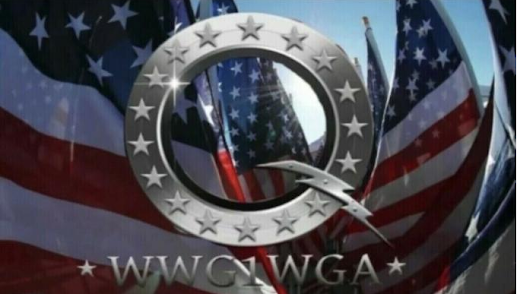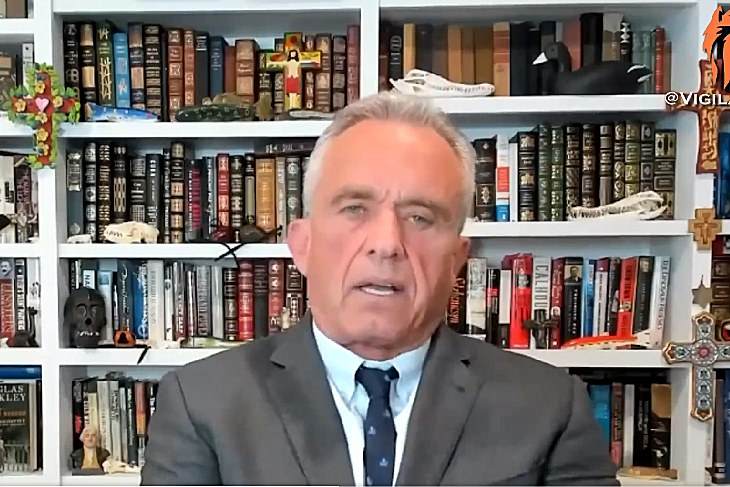The decade-long French Revolution that broke out in 1789 soon devolved into far more than removing the monarchy, as it became antithetical to the earlier American precedent. American notions of liberty and freedom were seen as far too narrow, given the state, if only all-powerful and all-wise, could mandate “equality” and force “fraternity” among its subjects.
Each cycle of French revolutionary fervor soon became more radicalized and cannibalistic—until it reached its logical ends of violent absurdity.
Originally, the idea of curbing the power of a Bourbon king through a parliamentary republic became lethally counter-revolutionary.
Soon even attacks on the Catholic Church and the abolition of the monarchy entirely were deemed insufficient. The king himself and his consorts had to be beheaded. Monasteries and churches were to be ransacked, and priests exiled or lynched.
The sometimes moderate Girondins, who favored constitutional government, were mostly executed by their former friends among the Montagnards. In turn, the latter were soon deemed too conservative for the emerging crazy Jacobins. So they, too, had to be decapitated. The ensuing year-long reign of terror guillotined thousands of innocents, deemed guilty of being guilty of something.
By 1793, the revolution had turned nihilist and suicidal. The foundational date of France was recalibrated (not as 1619 but) as 1789—or “year one.”
Jacobins sought to wipe out religion, both materially and spiritually. They replaced God, first, with the atheistic “Cult of Reason” and then a stranger still “Cult of the Supreme Being”—a dreamed-up, living, humanistic god that only the murderous Robespierre could fully envision, but eerily similar to our own Green New Deal deity.
The months of the year themselves were renamed, the days of the week renumbered and relabeled. Statues were toppled, first at night, later in shameless daylight. Place names were erased and renamed. The original revolutionary heroes were not to be mentioned; their uncouth successors deified. Money was printed to “spread the wealth”—until it was worthless.
Murderous cancel culture ran unchecked. Yesterday’s French revolutionary became today’s counterrevolutionary—and tomorrow’s decapitated.
Almost everyone who originally had opposed the absolute monarchy, and, like the Americans, wished for a constitutional replacement, was eventually executed by revolutionaries who were then executed by more radical revolutionaries. The longer and more radical the revolution ran, the meaner, dumber, and more deadly the revolutionaries who emerged from the woodwork.
Finally, what could not go on, did not go on, as French society unraveled. Then the so-called Thermidors put an end to the madness of the Robespierre brothers and their sidekick, the 26-year-old Saint-Just, and did to them what they had done to thousands.
The final revolutionary correction saw a Directory, then a Consulate, and finally the dictator Napoleon—the self-described emperor who claimed he was the final absolutist manifestation of the “Revolution.”
A Revolution of the Disingenuous
We are swept up in similarly scary revolutionary times, after the perfect storm of the 2020 rioting, the COVID destructive lockdowns, and a radical socialist takeover of the old Democratic Party.
Decades of successful and legitimate efforts to ensure equality of opportunity, a safety net for the poor, and increased civil liberties have transmogrified into an “equity” agenda, or state-mandated equality of result—or else!
“Diversity” is now an Orwellian word for racial essentialism to the one-drop degree. Jim Crow racism was not eliminated permanently. It now has resurfaced as woke or “good” segregation. Racially separate facilities and events are apparent “reparatory justice.” Black activists are calling for $800 billion in reparations from San Francisco, a city that is melting down as we speak.
The old precivilizational tribalism and monotony of thought are now deemed “diverse.” “Inclusion” means replacing one racial hierarchy of the 1950s with a newer one of the 2020s. Woke leftists prove “inclusive” by excluding as “haters” and “denialists” any who disagree and cannot be easily refuted.
Opportunists Abound
The Nike admen Colin Kaepernick and LeBron James ended up with millions of dollars in endorsements ultimately derived from Communist Chinese exploiters of servile labor—a fact that all their pseudo-revolutionary performance art cannot mask.
Like the rich and elite Montagnards and Jacobins, well-off, degreed suburban grifters suddenly became “woke” arbiters of the “correct.” Thousands of diversity, equity, and inclusion czars bloated administrations, broke university budgets, and terrified faculty and employees with their panopticon surveillance. And yet did any of them result in a single better student reader, or at least one more accomplished university math major? Have K-12 scores soared with DEI monitors on hand?
We have not descended to the guillotine yet, but we are getting there with online cancel culture, doxxing, deplatforming, boycotts, mandatory diversity statements, indoctrination training, ostracism for an incorrect word, and violence redefined as activism.
Black Lives Matter ended when its supposedly Marxist architects all vanished into comfortable bourgeoise estates and cushy retirements—along with the millions of dollars they shook down from guilt-ridden corporations.
#MeToo sputtered out once the mantra of “believe women” turned its attention to candidate Joe Biden and Tara Reade. It turned out that she most certainly must not be believed when she swore the Delaware Democrat had sexually assaulted her.
Supposed transgendered heroes vie for profitable TV endorsement commercials that are as lucrative to them as they are ruinous to their employers.
In our revolutionary times, mediocre biological male athletes “transition” into female sports and suddenly become rich and famous. Women who transition to males, for some reason, find no such profits from male competitions.
A black transient with 42 arrests and three assault convictions is accidentally killed by a would-be Samaritan bystander who takes action to stop his threats on the subway. The tragedy becomes a rallying cry for “activist” leaders, eager for continuous notoriety and profits, while 10,000 black people murdered per year, mostly by other black people, do not earn a snore from these same “civil rights” leaders.
The World Upside Down
Like Revolutionary France, our woke revolution was contrary to human nature and therefore had to be imposed by force or coercion.
Merit is the great enemy of wokeness. One day SAT tests were blind mechanisms to allow the less privileged to compete on the basis of talent rather than parentage. The next day such tests were deemed counterrevolutionary, racist enemies of the people. Universities boast of rejecting 60-70 percent of those who scored perfect on SATs, as if their excellence was proof of their “privilege.”
Jurisprudence was tarred as racist, as if laws against shoplifting, looting, smash-and-grab, car-jacking, and arson were created only by elite white men who never had the need to steal or loot and who therefore made silly, arbitrary laws against them.
Like the Jacobins, our woke elite deem prisons arbitrary detention centers. So thousands of those arrested for committing violent crimes have either never been charged, never convicted, never sentenced, or never incarcerated. These exemptions rest on the principle that the revolutionaries who destroyed the enforcement of law have the wherewithal to protect themselves from the dystopia they created.
Borders disappeared, apparently on grounds they were 19th-century racist relics. Yet sanctuary cities prove the least welcoming of the tens of thousands they all but invited into distant other towns and counties.
The homeless were no longer deemed vagrants, or selfish in their take-over of public spaces, but the victims of an oppressive society.
So public defecation, urination, fornication, and injection were rebranded as mere lifestyle choices of the unfortunate, not to be judged wrong or unlawful by the victimizers who supposedly made thousands homeless. Ancient laws of hygiene and municipal cleanliness were thrown out as bourgeois, as cities reverted to the protocols of their medieval forebears.
Leftists who created these Frankenstein-like monsters, like the fictive Dr. Frankenstein himself, became targets of their own experiments. It was no longer enough to support civil rights for the transgendered. Suddenly any questioning of the wisdom of biologically born males competing in women’s sports or of teenagers with penises undressing among teenage girls in locker rooms, or of state-sponsored drag-queen shows with children in attendance condemned one as transphobic and worse.
Advocating a secure border and strictly legal immigration was proof of nativism. Equal opportunity for all races was racism. Advocacy for the use of natural gas as a needed transitional fuel indicted one as a climate “denialist.”
As our woke version of the Jacobin revolution accelerated, society itself began to unwind—as expected given America relied on meritocracy, free expression dissent, the rule of law, forbearance, and tolerance.
In less than three years, our major cities became filthy to the point of unhealthiness. Violent crime and thievery drove businesses and commuters away. Subways at night became the domain of the homeless and criminal. Vacancy rates in San Francisco or downtown Portland shot up to 25 percent or more. Millions began leaving Jacobin blue cities and states, and headed for sanctuaries in more suburban and rural red states.
Once-trusted and familiar government agencies became weaponized—and inevitably incompetent. The FBI was not interested in the organizers of 120 days of violent looting, arson, murder, and rioting in summer 2020, or the threatening mobs who showed up at the homes of Supreme Court Justices. Instead, it fixated on parents at school board meetings, Latin Mass Catholics, former Trump Administration officials, and anyone daring to question the Russian collusion or Russian disinformation laptop hoaxes.
The Pentagon brass oversaw a flight from Afghanistan, in the greatest military humiliation in modern American history. Yet at the same time, it focused on rooting out white rage and white privilege despite presenting no data to substantiate its accusations. Former intelligence officers and “authorities” misled the country and warped an election, to ensure Americans did not take seriously the incriminating evidence in Hunter Biden’s laptop of the Biden family’s widespread corruption.
So, the world became topsy-turvy. Throwing a firebomb into a police-occupied patrol car earned a light sentence, while protesting illegally at the Capitol won a decade in prison.
An American who did not get vaccinated was to be thrown out of the U.S. military; an illegal alien crossing the border unlawfully without a vaccination might earn a free phone and free lodging in a big-city hotel.
The more the government printed money it did not have, the more the country was slandered as cruel and mean to its underclass. The more standards were dropped for admission, hiring, promotion, and retention, the more employers were deemed unfair and bigoted.
As the American Jacobin phase accelerated, the more it, too, seemed to pursue its own destruction. Few now trust that the graduates of the Ivy League and marquee universities know what they once did. And why not, when students are admitted without test scores, but are assured passing grades, watered-down classes, and graduation to be synonymous with admission?
The U.S. military fell short by thousands of recruits. And why not, when it advertised for manpower with invitations from drag queens, and hounded those as racists who had died at twice their numbers in the population in Afghanistan and Iraq?
A Counterrevolution Is Coming
At peak woke, our reign of terror is beginning to lose momentum because its continuation would erode all the work of 247 years of American progress and sacrifice.
Former and current liberals—an Elon Musk, Bill Maher, Matt Taibbi, Bari Weiss, Glen Greenwald, Naomi Wolf, or a Richard Dreyfuss—are deemed counterrevolutionaries for questioning the excesses of wokeism, and so began questioning the premises of wokeism itself.
New polls showed scant public support for open borders, for multiple sexual identities, and for biological men competing in women’s sports. Reparations from an insolvent government to black Americans—on the principle that those whose ancestors might have been enslaved eight generations ago were owed money from those whose ancestors might have owned slaves eight generations ago—is widely rejected by the general population.
When corporations like Anheuser-Busch or Disney tried to ingratiate themselves to the woke Jacobins, they lost billions in revenue—just as the woke Pentagon has lost thousands of recruits.
Woke networks like CNN have smaller audiences than some one-person podcasts.
A desperate and woke NBA now brags that its recent playoff televised audience reached over 4 million viewers. A quarter-century ago, when the U.S. population was nearly 60 million smaller, the pre-Jacobin NBA won over 70 million viewers who watched the 1998 finals.
Joe Biden, the thin veneer of the woke revolution, polls below 40 percent. Even that favorability is propped up by the consensus that he has no idea where he is or what he is saying—and thus at least is deserving of 40 percent support for not being responsible for what he has empowered.
A counterrevolution is building, not just because people are angry at what has become of their country, but because they now are learning that if they do nothing, they will have no country—and soon.











